Podcast: Play in new window | Download (Duration: 27:14 — 18.8MB) | Embed
Subscribe: Apple Podcasts | Spotify | Amazon Music | Android | Pandora | iHeartRadio | JioSaavn | Podchaser | Gaana | Podcast Index | Email | TuneIn | Deezer | Anghami | RSS | More

The Presentation in the Temple – Building a Kingdom of Love with Msgr. John Esseff
Msgr. John Esseff and Kris McGregor discuss the Feast of the Presentation, celebrated on February 2nd. They delve into the biblical account of Joseph and Mary presenting the infant Jesus in the temple, fulfilling the Jewish law.
The focus is on the profound encounter with Simeon and Anna, who recognize Jesus as the Messiah. Msgr. Esseff emphasizes the immediate and personal encounter with Jesus within oneself, stressing the importance of recognizing Him in daily life, family, and community.
Discerning Hearts reflection questions for this episode:
- Feast of the Presentation Significance: What significance does the Feast of the Presentation hold, and how does it commemorate the biblical account of Joseph and Mary presenting Jesus in the temple?
- Fulfillment of Jewish Law: How did Joseph and Mary, devout Jews, fulfill the requirements of the Jewish law by presenting Jesus in the temple 40 days after His birth?
- Encounter with Simeon: Reflect on Simeon’s encounter with the infant Jesus. How does Simeon’s recognition of Jesus as the Messiah reflect the fulfillment of divine promises?
- Prophecy and Blessing: Explore the powerful prophecy spoken by Simeon and the blessing bestowed upon Mary and Joseph. How do these prophetic words foreshadow the challenges and significance of Jesus’ life?
- Prophetess Anna: Consider the role of Prophetess Anna in the presentation scene. How does her devout life and recognition of Jesus contribute to the unfolding narrative?
- Interior Encounter with Jesus: Reflect on Msgr. Esseff’s emphasis on the immediate encounter with Jesus within oneself. How can one cultivate this interior relationship with Jesus in daily life?
- Recognizing Jesus in Others: In what ways does Msgr. Esseff encourage recognizing Jesus in family members and others in the community? How does this recognition contribute to building relationships?
- The Temple Within: How does Msgr. Esseff underscore the concept of being the temple of God and encountering Jesus within? What practices, like morning prayer, does he suggest for fostering this awareness?
- Family as a Sacred Unit: Reflect on Msgr. Esseff’s insights into seeing family members as reflections of Christ. How can recognizing Christ within family members strengthen familial bonds?
- Mission Beyond the Church: Consider Msgr. Esseff’s perspective on the mission after leaving the church, bringing Jesus into the world. How does this concept align with the universal availability of Jesus in daily life?
- Prayer for Trust: Explore the efficacious novena to the Sacred Heart of Jesus. How does this prayer, rooted in trust, align with the themes discussed in the podcast?
- Applying Psalm Responsorial: Apply the words of the responsorial psalm from the Mass to personal reflection. How can one open the portals of their heart to let the King of Glory, Jesus, enter?
Gospel: Luke 2:22-40
When the days were completed for their purification
according to the law of Moses,
Mary and Joseph took Jesus up to Jerusalem
to present him to the Lord,
just as it is written in the law of the Lord,
Every male that opens the womb shall be consecrated to the Lord,
and to offer the sacrifice of
a pair of turtledoves or two young pigeons,
in accordance with the dictate in the law of the Lord.Now there was a man in Jerusalem whose name was Simeon.
This man was righteous and devout,
awaiting the consolation of Israel,
and the Holy Spirit was upon him.
It had been revealed to him by the Holy Spirit
that he should not see death
before he had seen the Christ of the Lord.
He came in the Spirit into the temple;
and when the parents brought in the child Jesus
to perform the custom of the law in regard to him,
he took him into his arms and blessed God, saying:“Now, Master, you may let your servant go
in peace, according to your word,
for my eyes have seen your salvation,
which you prepared in the sight of all the peoples:
a light for revelation to the Gentiles,
and glory for your people Israel.”The child’s father and mother were amazed at what was said about him;
and Simeon blessed them and said to Mary his mother,
“Behold, this child is destined
for the fall and rise of many in Israel,
and to be a sign that will be contradicted
—and you yourself a sword will pierce—
so that the thoughts of many hearts may be revealed.”
There was also a prophetess, Anna,
the daughter of Phanuel, of the tribe of Asher.
She was advanced in years,
having lived seven years with her husband after her marriage,
and then as a widow until she was eighty-four.
She never left the temple,
but worshiped night and day with fasting and prayer.
And coming forward at that very time,
she gave thanks to God and spoke about the child
to all who were awaiting the redemption of Jerusalem.When they had fulfilled all the prescriptions
of the law of the Lord,
they returned to Galilee, to their own town of Nazareth.
The child grew and became strong, filled with wisdom;
and the favor of God was upon him.
Lectionary for Mass for Use in the Dioceses of the United States, second typical edition, Copyright © 2001, 1998, 1997, 1986, 1970 Confraternity of Christian Doctrine;
Msgr. John A. Esseff is a Roman Catholic priest in the Diocese of Scranton. Msgr. Esseff served a retreat director and confessor to St. Mother Teresa. He continues to offer direction and retreats for the Sisters of the Missionaries of Charity. Msgr. Esseff encountered St. Padre Pio, who would become a spiritual father to him. He has lived in areas around the world, serving in the Pontifical missions, a Catholic organization established by Pope St. John Paul II to bring the Good News to the world especially to the poor. He continues to serve as a retreat leader and director to bishops, priests, sisters, seminarians and other religious leaders around the world.


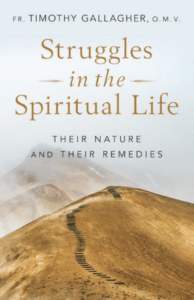
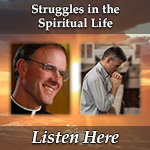

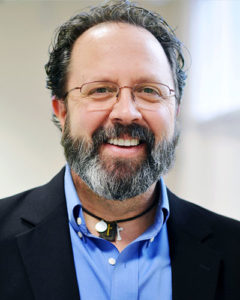 Join Dan Burke and Kris McGregor as they discuss the teachings of the great spiritual master and Doctor of the Church, St. Teresa of Avila. The focus of their conversations will primarily reside in St. Teresa’s “Interior Castle” and her wisdom in regard to the activity of the enemy and the reality of spiritual warfare.
Join Dan Burke and Kris McGregor as they discuss the teachings of the great spiritual master and Doctor of the Church, St. Teresa of Avila. The focus of their conversations will primarily reside in St. Teresa’s “Interior Castle” and her wisdom in regard to the activity of the enemy and the reality of spiritual warfare.

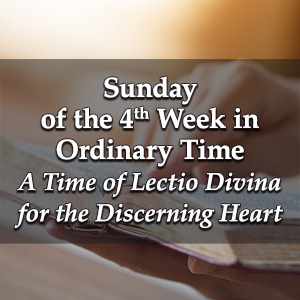 Sunday of the Fourth Week in Ordinary Time – A Time of Lectio Divina for the Discerning Heart Podcast
Sunday of the Fourth Week in Ordinary Time – A Time of Lectio Divina for the Discerning Heart Podcast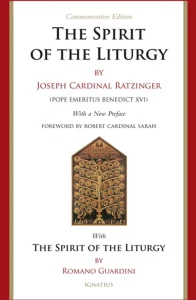



 Mothers and sisters most dear to me in Christ: in the first place strive with all your power and zeal to be open. With the help of God, try to receive such good counsel that, led solely by the love of God and an eagerness to save souls, you may fulfil your charge.
Mothers and sisters most dear to me in Christ: in the first place strive with all your power and zeal to be open. With the help of God, try to receive such good counsel that, led solely by the love of God and an eagerness to save souls, you may fulfil your charge.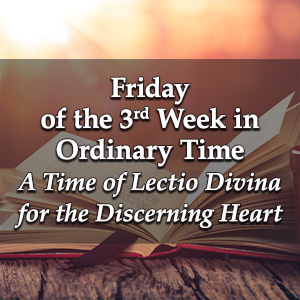 Friday of the Third Week in Ordinary Time – A Time of Lectio Divina for the Discerning Heart Podcast
Friday of the Third Week in Ordinary Time – A Time of Lectio Divina for the Discerning Heart Podcast


